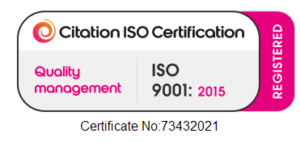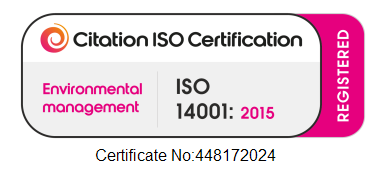With everything from artificial intelligence to cloud computing rapidly transforming the business landscape, we explore how emerging technologies can help companies interact with customers, improve their services and gain insight into trends and habits.
The increasing adoption of digital technologies is transforming the way consumers interact with companies. From ordering food at the touch of a button to playing music via voice commands, the pace of change is accelerating, with business owners sometimes wondering which new technologies they should invest in first.
“Emerging technologies are appearing in just about every industry, driving innovations and knowledge sharing,” says Damien Judge, Head of Business Commercial Excellence at Ulster Bank. “Cloud, social, mobile, the internet of things (IoT) and artificial intelligence (AI), along with inexpensive computing power, are fuelling what some are calling the fourth industrial revolution,” he says.
Advances in technology mean companies can now harness and use vast data stores to gain insights into their customers.
“If we look at Amazon, Google and Facebook, they’re leading the way in terms of modelling customers’ behaviour and gaining a deep understanding of their customers’ ‘digital DNA’,” says Judge.
In this environment, businesses have to evolve or risk being left behind.
“Ulster Bank is harnessing emerging technologies such as AI/machine learning, blockchain and the internet of things to enhance how we interact with and meet the needs of our customers. There are a wide range of use cases being explored in this area across Ulster Bank and RBS. It’s a very exciting time for the financial services industry as we explore how we can leverage these technologies to the benefit of our customers,” says Robin Marshall, Chief Information Officer, Ulster Bank.
Gathering the data
With everything from TVs to kitchen appliances increasingly linked to the internet, the IoT is already part of many consumers’ lives.
“IoT is going to play a huge part in what customers want in the future,” says Judge. “The internet-connected household is going to become more common, and driverless car technology is going to advance even further. Businesses are going to adapt and respond to the new ways that people live their lives.”
Meanwhile, AI and machine learning are becoming ever more skilfully integrated, making it easier to gain insights into customers’ habits and needs. The world is now awash with data, but the challenge is often deciding what data you need, and how to use it.
While there are plenty of affordable tools for data collection, Martin Casey, CEO of Arekibo, Ireland’s largest independent digital consultancy, observes that many are bought then not used, either because the data is not truly useful or because there is no data analytics strategy or role within the company to make proper use of it.
He advises that before you buy a new CRM system, for example, you should formulate a clear business case for why you need it.
“It’s about having clarity on your management team on what they’re looking for and how they are going to measure success,” says Casey. “Ask yourself: if we implement this, what do we believe it will give to the business and are we prepared to invest our time to be sure this can be done properly?”
Judge agrees: “Companies should think very carefully about the exact problem they are trying to solve, and whether the chosen technology will deliver a complete or partial solution.”
Using the information
Unified communications company Phonovation provides a good example of effective data collection and use. The company uses its clients’ customer data to help manage customer relations and drive repeat visits – as it does for clothing-alterations company The Zip Yard.
John Waters, Phonovation’s Country Manager for Ireland and UK, says: “The Zip Yard’s EPOS [electronic point of sale] systems connect back into a CRM system, which in turn connects to our messaging platform. We pull in all that information from their CRM system and can set criteria on when and whether to send messages to the customers. For example, if a customer usually goes in regularly then doesn’t visit for a while, we can send them a message offering a discount if they come in before the end of the month.”
The result is that messages and offers are tailored to each individual customer’s needs and habits.
“IoT is going to play a huge part in what customers want in the future. Businesses are going to adapt and respond to the new ways that people live their lives”
Damien Judge, Head of Business Commercial Excellence, Ulster Bank
The use of data to drive customer relations in this way is now vital, says Judge. “Data is at the heart of excellent customer service. The customer should feel like they are known, understood and communicated to appropriately.”
Technology is also changing the way staff interact with customers within shops, restaurants and other businesses. Point-of-sale (POS) software innovator Vend, which operates in Ireland and internationally, was founded in 2010 as the first-ever entirely cloud-based POS platform for retail. It does away with the need for a cash register, replacing it with a mobile POS system that can be used on Mac, PC or iPad.
“It gives retailers the ability to get out from behind the counter and better serve their customers, and gives managers the ability to see their business, product and staff performance in real time, whether they’re in the store or spending time with their family,” says Vend founder Vaughan Rowsell.
“With no upfront costs or set-up fees, and nothing but a computer or iPad needed to get up and running, retailers are able to access inventory management, detailed reporting, and customer loyalty and e-commerce capabilities.”
The rise of AI
Artificial intelligence is driving further advances in the way businesses respond to customers’ needs. Sentiment analysis, for instance, combines natural language processing, text analysis, computational linguistics, and biometrics to understand the tone of communications and respond accordingly.
“This is particularly useful in the area of complaint handling,” says Judge. “Companies are finding quicker and better ways to assess and respond to the challenge of dissatisfied customers using AI.”
Virtual assistants and chatbots are becoming more common, enabling companies to answer regular repetitive questions using technology advances.
“Even digital relationship managers are being trialled and having success in several international banks,” says Judge. “AI is being used to predict when issues are going to occur in customers’ heating systems. Car manufacturers are using AI to predict when issues are going to occur in cars via continuous data feedback.”
Just a few weeks ago Vend launched Dott, a new AI tool that makes suggestions and tips for improving your business.
“By analysing their sales, product, customer and inventory information in real time, it can make personalised suggestions to retailers on what they should do next to grow their business,” says Rowsell. “Dott will also learn industry-wide trends from the tens of thousands of retailers who use the Vend platform.”
Meanwhile, Ulster Bank recently implemented its Salesforce AI tool Einstein in order to better understand customers’ needs.
“This operates similarly to Netflix or Amazon, recommending additional associated products or viewings based on how similar people behaved and choices they made,” says Judge. “When a recommendation is rejected and a reason for rejection returned, this feedback loop is used to improve suggestions in future.”
These new technologies will increasingly be used to improve customer journeys, meet customer needs and ensure that processes run efficiently.
For businesses, it’s an opportunity to adapt and evolve – and ultimately to achieve better performance as a result.
Five technological developments to watch in 2018
IoT devices are expected to become more common around the home. The growth of cloud computing and AI is also set to increase, and manual tasks within organisations will become more automated. Jobs that don’t currently exist could be created as a result of AI advances.
From a banking perspective, blockchain technologies are anticipated to be a game changer in 2018, giving more control to the consumer.
Cryptocurrencies will likely become increasingly relevant. As companies and the public in general want to use alternative currencies, businesses will have to respond.
Development of 5G mobile data could make a difference in areas such as driverless vehicles.
In healthcare and retail, expect to see increased use of virtual and augmented reality. As costs plummet, shopping may eventually be done via a VR headset.
source: Business Achievers










